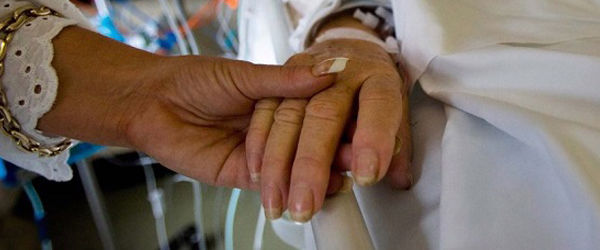Seventeen of the 28 states that require contraception coverage have some sort of religious exemption for employers, but few of the exemptions are quite as narrow as the one proposed by the Department of Health and Human Services when it announced Aug. 1 that contraceptives and sterilization will be among the mandated preventive services for women under the new health reform law.Under the proposal, only religious employers meeting four criteria would be exempt from providing contraceptives and female sterilization through their health plans. Those requirements are that the organization "(1) has the inculcation of religious values as its purpose; (2) primarily employs persons who share its religious tenets; (3) primarily serves persons who share its religious tenets; and (4) is a nonprofit organization" under specific sections of the Internal Revenue Code.An HHS spokeswoman told Catholic News Service that all four criteria must be met in order for the religious exemption to apply. She said the HHS exemption was based on "the most commonly used" wording in seven states, but said she could not name the seven states involved.Religious freedom experts say the HHS exemption could leave out faith-based social service agencies, health care providers and even Catholic schools and colleges with majority non-Catholic enrollment.Twice in the past decade, the U.S. Supreme Court has refused to hear appeals of state court rulings that said church agencies could not be exempt from laws requiring coverage of contraceptives. In 2007 it let stand New York state's Women Health and Wellness Act of 2002; three years earlier it rejected a similar appeal by Catholic Charities of Sacramento of a California law requiring prescription coverage to include contraceptives.But most existing state mandates often do not apply to self-insured health plans, plans under the Employee Retirement Income Security Act of 1974 and plans that did not cover prescriptions at all, according to Michael F. Moses, associate general counsel for the U.S. Conference of Catholic Bishops.He called the proposed HHS exemption "the narrowest religious exemption we've ever seen proposed in federal law," noting that it doesn't cover any individual, any religiously affiliated plan offered to the general public, any religious employer whose purpose is other than the inculcation of religious values, any religious employer that serves the public or any religious organization that doesn't primarily employ persons who share the organization's religious tenets.Church teaching holds that artificial contraception is sinful and prescription insurance coverage for employees of church institutions routinely exempts coverage for birth control pills, just as employee health insurance exempts coverage for abortion, sterilization and other procedures the church considers immoral.Of even greater concern to church officials in recent years has been the fact that drugs labeled contraceptives by the Food and Drug Administration now include "emergency contraception" drugs ella and Plan B, which can cause an abortion.Richard Doerflinger, associate director of the U.S. bishops' Secretariat for Pro-Life Activities, told CNS that although the HHS announcement said the contraceptive mandate does "not include abortifacient drugs," the agency is simply denying "that a drug that can prevent the survival of a new embryo before implantation is an 'abortion,' because federal law does not define abortion that way."But, he added, "it is seen as abortion in Catholic teaching and the views of many pro-life Americans."In addition, ella "is a close analog to the abortion drug RU-486 and is shown in studies to be capable of disrupting even an established (implanted) pregnancy," Doerflinger said. "But the FDA never clearly acknowledged this reality when it approved the drug, treating it solely as preventing pregnancy."The 28 states requiring that contraception coverage be included in prescription drug plans are: Arizona, Arkansas, California, Colorado, Connecticut, Delaware, Georgia, Hawaii, Illinois, Iowa, Maine, Maryland, Massachusetts, Michigan, Missouri, Montana, Nevada, New Hampshire, New Jersey, New Mexico, New York, North Carolina, Oregon, Rhode Island, Vermont, Washington, West Virginia and Wisconsin.The 17 states with a religious exemption for employers are: Arizona, Arkansas, California, Connecticut, Delaware, Hawaii, Maine, Maryland, Massachusetts, Michigan, New Jersey, New Mexico, New York, North Carolina, Oregon, Rhode Island and West Virginia.Missouri allows any employer, religious or secular, to seek an exemption from the contraceptive coverage mandate. Nevada has a religious exemption for insurers.—CNS{gallery width=100 height=100}gallery/2011/0812/contraception/{/gallery}

